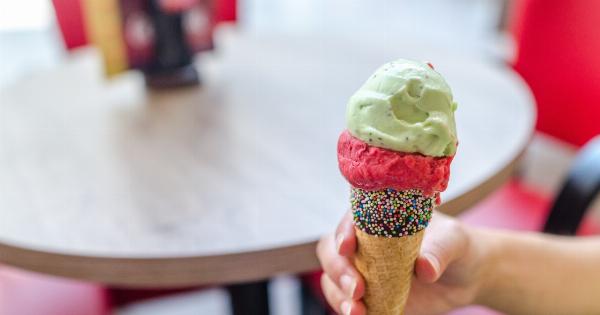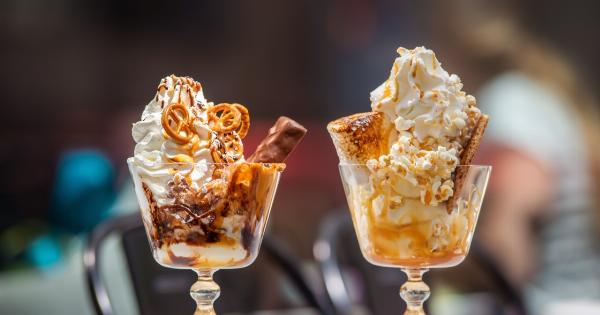Ice cream is sweet, cold, and delicious, and as it so often is with the things we love most, it can sometimes seem too good to be true. Some people have reported that they notice a blackish tint on their teeth after consuming ice cream.
But is this true? Do teeth turn black from eating ice cream? Fortunately, the answer is no, but there are some things to keep in mind if you want to maintain a healthy smile while enjoying your favorite frozen dessert.
What causes teeth to turn black?
Before we delve into whether ice cream can stain your teeth, it is essential to understand what causes teeth to become discolored in the first place. There are several reasons why teeth may appear black, including:.
Cavities and tooth decay
One of the most common causes of black teeth is tooth decay. When bacteria in the mouth feed on the sugars and starches in our food, they produce acid that can erode tooth enamel, leading to cavities and decay.
If left untreated, this decay can spread deep into the tooth, reaching the nerve and causing pain and infection. In some cases, the tooth may turn black or gray as a result of the damage.
Trauma or injury
If you have experienced trauma or injury to your teeth, it may result in black or discolored teeth. This trauma may be the result of a sports injury, a fall, or any other physical impact.
If the trauma affects the blood vessels or nerves inside the tooth, it can lead to discoloration.
Medications and medical conditions
Some medications and medical conditions can lead to tooth discoloration and blackening. Antibiotics such as tetracycline, for example, can cause yellow or gray stains on the teeth if taken during childhood.
Medical conditions such as celiac disease or kidney failure can also contribute to tooth discoloration.
Does ice cream cause teeth to turn black?
So, can ice cream cause teeth to turn black? No, it doesn’t. The pigments in ice cream aren’t potent enough to cause staining on their own.
While some people might notice some slight staining after consuming ice cream, this is typically due to other factors, such as poor oral hygiene or existing tooth decay. The sugar in ice cream can combine with bacteria in the mouth to produce acid that can erode tooth enamel, leading to cavities and decay. These cavities can then turn black if left untreated.
How can you prevent tooth decay and blackening?
While consuming ice cream won’t turn your teeth black, you should still take steps to maintain oral hygiene, including:.
Brushing twice a day
Brush your teeth twice a day with fluoride toothpaste, focusing on all surfaces of the teeth, including the fronts, backs, and chewing surfaces.
Floss daily
Flossing is essential for removing trapped food particles and bacteria from between teeth where a toothbrush can’t reach.
Eat a balanced diet
Avoid sugary and acidic foods and drinks, including ice cream, and opt for a balanced diet rich in fruits, vegetables, whole grains, and lean proteins.
Visit your dentist regularly
Regular check-ups with your dentist can help catch any cavities or decay before they progress to blackening and require more invasive treatments, such as root canals or extractions.
Conclusion
So, there you have it! While ice cream won’t turn your teeth black, it is still important to practice good oral hygiene to prevent tooth decay and other dental problems.
Enjoy your ice cream in moderation, and always remember to brush and floss regularly and visit your dentist for regular check-ups.





























